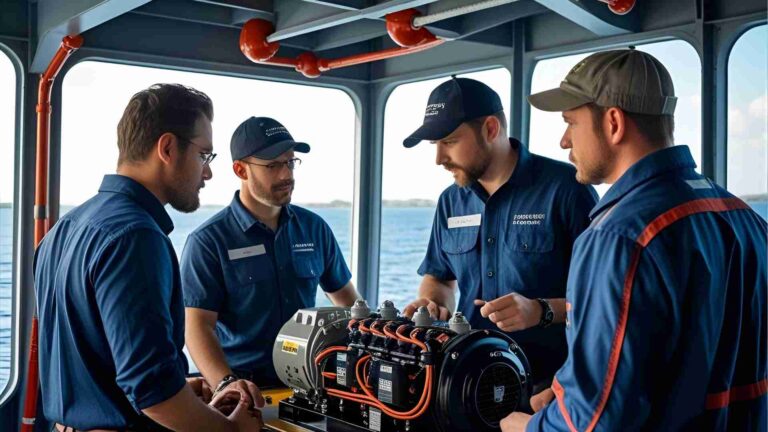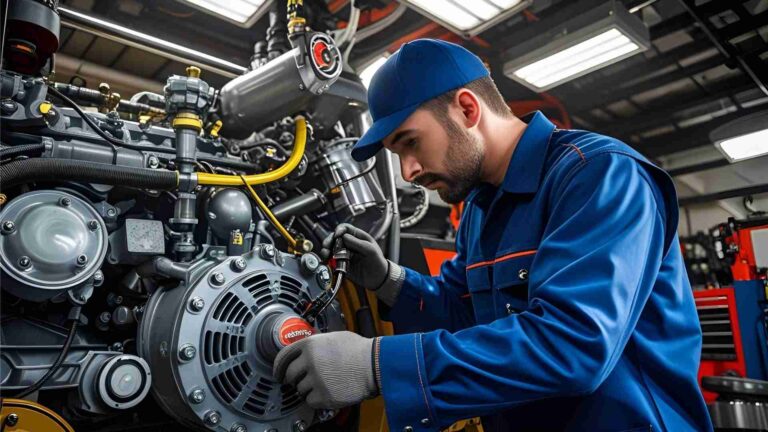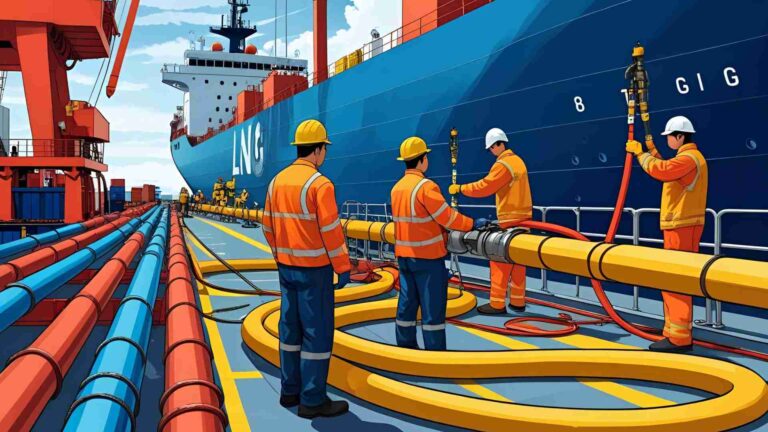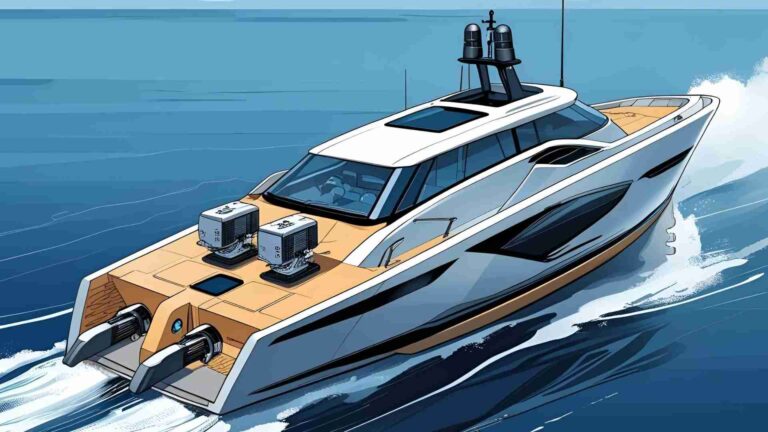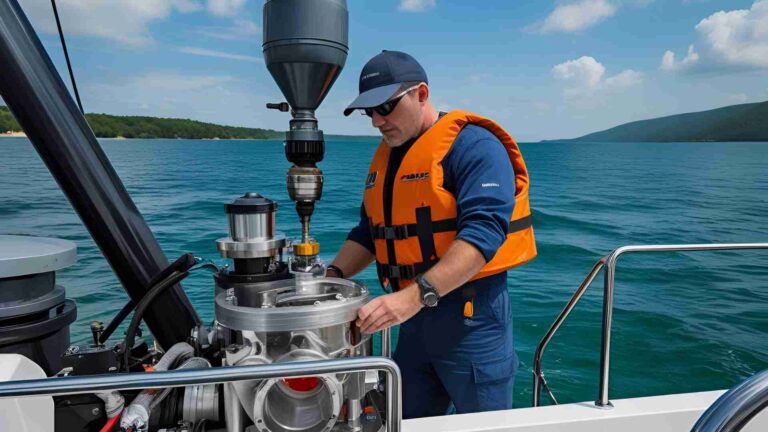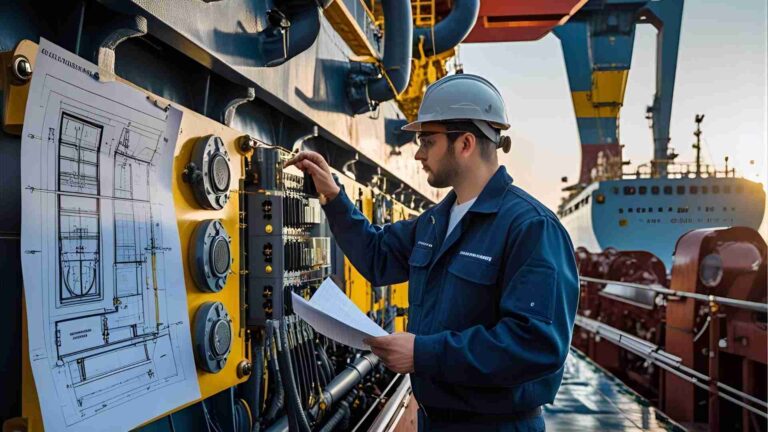What is Ship Superintendency?
Explore ship superintendency: roles, responsibilities, skills, and career paths. Learn how superintendents ensure safe, efficient maritime operations.
Ship superintendency is a cornerstone of the maritime industry, ensuring vessels remain seaworthy, compliant, and operational. This critical role bridges the gap between shipowners, crews, shipyards, and regulatory bodies, overseeing the technical, operational, and safety aspects of a vessel’s lifecycle. Whether during routine maintenance, dry-docking, or complex repair projects, ship superintendents are the linchpins that keep global shipping safe and efficient. This article delves into the intricacies of ship superintendency, its responsibilities, required skills, career paths, and emerging trends, offering a complete guide for maritime students, professionals, and enthusiasts.
Understanding Ship Superintendency
Ship superintendency involves the shore-based management and supervision of a vessel’s technical and operational needs. Superintendents act as the primary liaison between the shipowner or management company and the vessel, ensuring that maintenance, repairs, and compliance align with industry standards. Their work ensures that ships operate safely, meet regulatory requirements, and remain cost-effective.
Types of Ship Superintendents
Ship superintendency encompasses several specialized roles, each focusing on distinct aspects of vessel management:
- Technical Superintendent: Oversees maintenance, repairs, and dry-docking, focusing on mechanical, electrical, and structural systems. They ensure compliance with classification society and flag state standards.
- Marine Superintendent: Manages navigational safety, crew performance, and operational efficiency, ensuring the vessel adheres to safe navigation practices.
- HSE Superintendent: Focuses on health, safety, and environmental compliance, ensuring adherence to regulations like MARPOL and implementing safety protocols.
Each type plays a unique role, but all share the common goal of maintaining vessel integrity and operational efficiency.
Why Ship Superintendency Matters
Ship superintendents are essential for several reasons:
- Safety: They coordinate inspections and repairs to prevent accidents, breakdowns, or environmental incidents.
- Regulatory Compliance: Superintendents ensure vessels meet standards set by the International Maritime Organization (IMO), SOLAS, MARPOL, and classification societies like DNV or Lloyd’s Register.
- Cost Efficiency: By managing budgets and preventing delays, they save shipowners millions annually.
- Crew Support: They provide technical and logistical assistance, enabling the crew to focus on operations.
As Capt. R. Sundaram, a marine consultant, notes, “A competent ship superintendent can save millions annually by preventing failures, reducing downtime, and ensuring compliance.”
Core Responsibilities of a Ship Superintendent
The role of a ship superintendent is multifaceted, requiring technical expertise, project management skills, and strong communication. Below are the primary responsibilities:
1. Planned Maintenance Supervision
Superintendents oversee the vessel’s maintenance schedule, ensuring that critical systems—such as engines, navigation equipment, and hull structures—are in optimal condition. They:
- Review and approve maintenance plans.
- Monitor condition-based maintenance using data from onboard systems.
- Manage spare parts procurement to avoid operational delays.
2. Dry Dock Management
Dry-docking is a critical phase where vessels undergo extensive repairs and inspections. Superintendents:
- Plan and supervise docking and undocking processes.
- Evaluate shipyard quotes, timelines, and work quality.
- Coordinate with shipyard teams to ensure repairs meet specifications.
3. Regulatory Compliance
Superintendents ensure vessels comply with international and national regulations. They:
- Coordinate inspections with classification societies and flag states.
- Maintain up-to-date documentation, including ISM Code, ISPS, and STCW certifications.
- Address non-compliance issues promptly to avoid penalties or detentions.
4. Budget Control
Cost management is a critical aspect of superintendency. Superintendents:
- Prepare annual operating (OPEX) and capital expenditure (CAPEX) budgets.
- Negotiate repair costs with shipyards and suppliers.
- Monitor project expenses to prevent budget overruns.
5. Crew and Technical Support
Superintendents act as a shore-based support system for the crew, assisting with:
- Technical troubleshooting during emergencies.
- Coordination of surveys, audits, and certifications.
- Communication between the crew, shipowner, and external stakeholders.
6. Ship Sale and Purchase Oversight
When a vessel is bought or sold, superintendents play a pivotal role in assessing its condition. They:
- Conduct thorough inspections to evaluate seaworthiness.
- Assess compliance with industry standards.
- Provide cost estimates for repairs or upgrades, aiding shipowners in decision-making.
A Day in the Life: Real-World Application
Consider a scenario where a vessel reports excessive vibration in its main engine. A technical superintendent would:
- Analyze data from the ship’s condition monitoring system.
- Consult the engine manufacturer for diagnostics.
- Arrange for spare parts and schedule repairs at the next port.
- Update class documentation to reflect the completed work.
This proactive approach minimizes downtime and ensures the vessel remains operational and safe.
Required Skills and Qualifications
Becoming a ship superintendent requires a blend of education, experience, and specialized skills. Below are the key requirements:
Educational Background
- Degree: A bachelor’s degree in marine engineering, nautical science, or marine transportation is typically required. Equivalent work experience may suffice for some employers.
- Certifications: STCW certification (officer level) and credentials from bodies like the U.S. Coast Guard (USCG) or DNV are often mandatory.
Professional Experience
- Sea-Time: Most employers require candidates to have served as a Chief Engineer, Master Mariner, or senior officer, providing hands-on experience with vessel operations.
- Industry Knowledge: Familiarity with ship systems, dry-docking processes, and regulatory frameworks is essential.
Key Skills
- Project Management: Ability to oversee complex repair projects, manage timelines, and coordinate with multiple stakeholders.
- Technical Expertise: In-depth knowledge of mechanical, electrical, and structural systems.
- Budgeting: Proficiency in cost control and financial planning.
- Communication: Strong interpersonal skills to liaise with crews, shipyards, and management.
- Attention to Detail: Vigilance in ensuring compliance and quality standards.
Training Programs
Aspiring superintendents often undergo specialized training at maritime institutions, covering:
- Emergency response protocols.
- Document verification and processing.
- Damage assessment and cost estimation.
- Budget management and project oversight.
Experience is critical, as seasoned professionals bring practical insights that enhance their supervisory capabilities.
Career Path and Opportunities
Ship superintendency offers a dynamic and rewarding career path for maritime professionals transitioning to shore-based roles. Below is an overview of the career landscape:
Who Hires Ship Superintendents?
- Ship Management Companies: Firms like V.Ships and Anglo-Eastern rely on superintendents to manage fleets.
- Shipping Lines: Major operators like Maersk and MSC employ superintendents for their vessels.
- Offshore and Oil & Gas Companies: These industries require superintendents for specialized vessels.
- Maritime Consultancies: Firms like Sinotech Marine hire superintendents for condition assessments and project management.
Salary Expectations
Salaries vary by region and experience level. Below is a table of estimated annual salaries (in USD):
| Region | Annual Salary Range (USD) |
|---|---|
| Europe | $80,000 – $120,000 |
| Middle East | $90,000 – $130,000 |
| Asia | $50,000 – $90,000 |
| North America | $100,000 – $140,000 |
These figures reflect the high demand for skilled superintendents, with experienced professionals commanding higher salaries.
Career Progression
A typical career path might include:
- Junior Officer: Gain sea-time as a deck or engine officer.
- Senior Officer: Serve as Chief Engineer or Master Mariner.
- Superintendent: Transition to a shore-based role, starting as a junior superintendent.
- Senior Superintendent or Fleet Manager: Oversee multiple vessels or manage entire fleets.
Emerging Trends in Ship Superintendency
The maritime industry is evolving, and ship superintendency is adapting to new technologies and regulations. Key trends include:
1. Digital Twin and Predictive Maintenance
Digital twins—virtual models of a vessel’s systems—enable superintendents to monitor performance in real-time and predict failures. This technology reduces downtime and enhances maintenance planning.
2. Remote Inspections
Drones and 3D scanning technologies allow superintendents to assess structural integrity without physically boarding the vessel, improving efficiency and safety.
3. Sustainable Superintendency
With the IMO’s focus on decarbonization, superintendents are increasingly responsible for:
- Ensuring compliance with Energy Efficiency Existing Ship Index (EEXI) and Carbon Intensity Indicator (CII).
- Overseeing retrofits for alternative fuels like LNG or ammonia.
- Implementing energy-efficient technologies to reduce emissions.
4. Cybersecurity Integration
As vessels become more digitized, superintendents must protect onboard systems from cyber threats, ensuring secure data transmission and system integrity.
Chart: Ship Superintendent Workflow
Below is a flowchart illustrating the typical workflow of a technical superintendent during a dry-docking project:

This workflow highlights the structured approach superintendents take to ensure efficient and compliant repairs.
Challenges in Ship Superintendency
The role is not without challenges:
- High Responsibility: Superintendents are accountable for vessel safety and compliance, with significant consequences for errors.
- Time Pressure: Tight schedules during dry-docking or emergency repairs demand quick decision-making.
- Complex Coordination: Managing multiple stakeholders—shipyards, crews, and regulators—requires exceptional communication.
- Travel Demands: While shore-based, the role often involves frequent travel to shipyards or vessels worldwide.
FAQs: Ship Superintendency
Do I need sailing experience to become a ship superintendent?
What is the difference between a technical and marine superintendent?
Is ship superintendency a shore-based job?
How can students prepare for this career?
Why Choose a Career in Ship Superintendency?
Ship superintendency is a dynamic and impactful career that combines technical expertise, leadership, and strategic decision-making. It offers:
- Global Impact: Superintendents ensure the safe and efficient operation of vessels that power global trade.
- Career Stability: The maritime industry’s growth ensures consistent demand for skilled professionals.
- Diverse Opportunities: From ship management to consultancies, the role offers varied career paths.
- Competitive Salaries: High earning potential reflects the role’s responsibility and expertise.
For maritime students, deck officers, or engineers seeking a shore-based career, ship superintendency provides a unique blend of challenge and reward. It requires vigilance, technical knowledge, and leadership, but the ability to keep ships running safely and efficiently makes it a fulfilling profession.
Conclusion
Ship superintendency is the backbone of maritime operations, ensuring vessels are safe, compliant, and ready for the demands of global shipping. From managing dry-docks to overseeing compliance and supporting crews, superintendents play a pivotal role in the industry’s success. With evolving technologies and a focus on sustainability, the role is becoming even more critical. Whether you’re a maritime enthusiast or an aspiring professional, understanding ship superintendency offers insight into a career that keeps the world’s fleets moving.
Happy Boating!
Share What is Ship Superintendency? with your friends and leave a comment below with your thoughts.
Read Essential Skills for a Career in Maritime Leadership until we meet in the next article.

